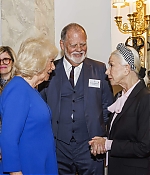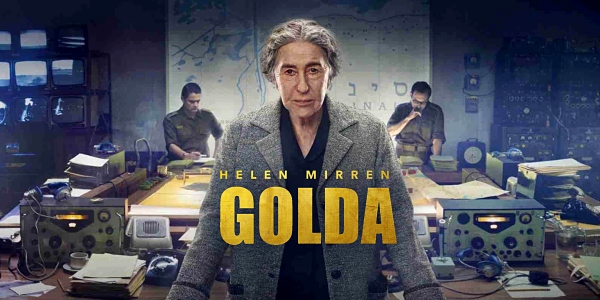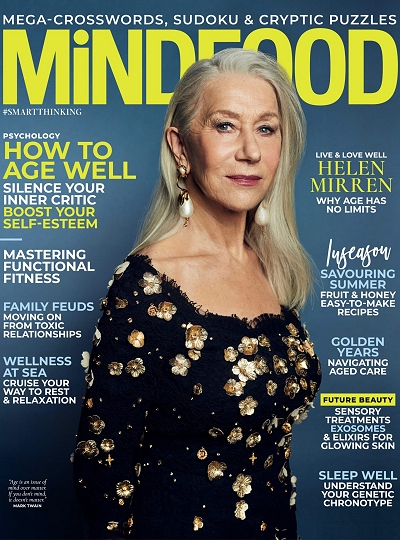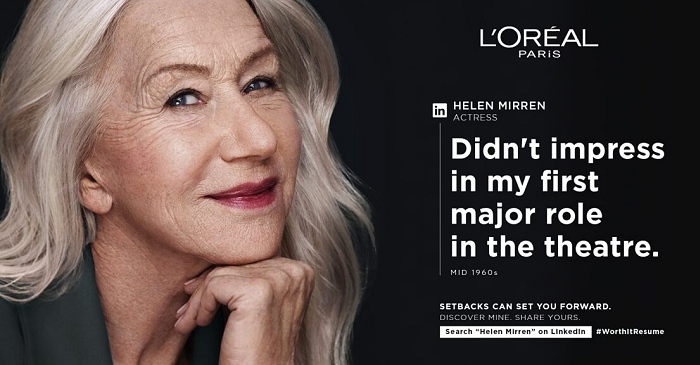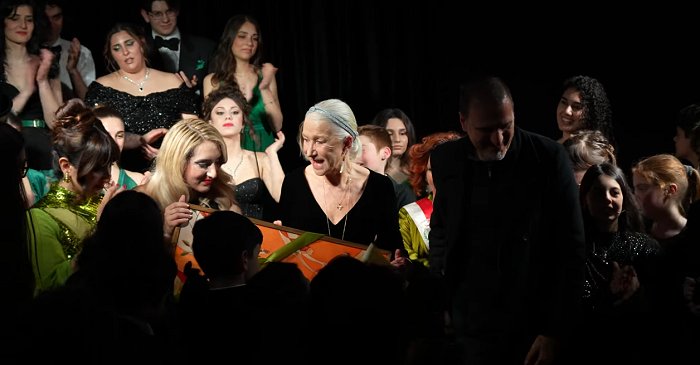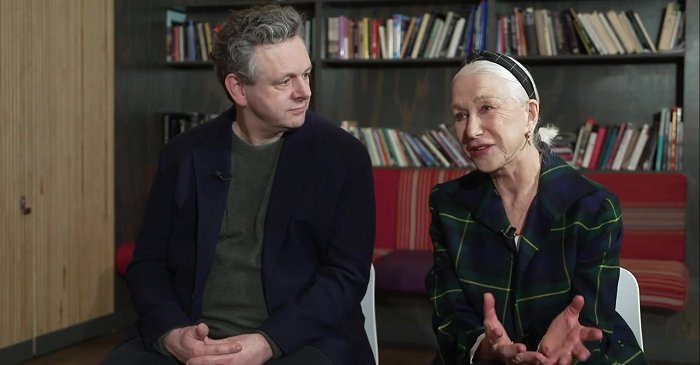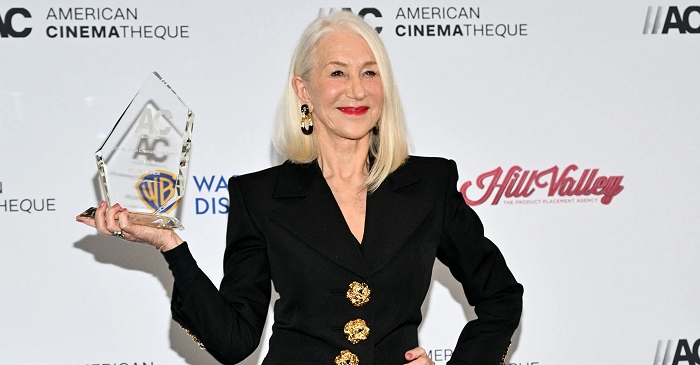
|
Welcome to The Helen Mirren Archives, your premiere web resource on the British actress. Best known for her performances with the Royal Shakespeare Company, "Prime
Suspect" and her Oscar-winning role in "The Queen", Helen Mirren is one of the world's most eminent actors today. This unofficial fansite provides you with all latest
news, photos and videos on her past and present projects. Enjoy your stay.
|
Celebrating
10 years
on the web
|
From Southend to Brighton doesn’t sound like a great leap – but it is if, like Helen Mirren, you’ve conquered the West End, TV and the silver screen along the way.
Did the 1960s setting have a certain resonance for you?
The mods and the rockers – I remember all of that. I wasn’t a part of it but I did have an aunt who had a boarding house in Brighton, and I did go and work there as a waitress, funnily enough. I was kind of like Rose. I was Rose for a summer. I served the breakfast and the dinner in the evening. We didn’t do lunch. I was a young girl meandering around Brighton looking for something exciting to happen to me as well.
Did you know what you were looking for?
No, of course not. You don’t at 16, do you? In fact, the most important thing that happened to me in Brighton was I discovered European film. There was a funky little piss-smelling cinema that probably normally played porn but it was playing “L’Avventura” and I wandered in one afternoon and watched Monica Vitti and I was absolutely transported. It’s funny how things go round, because I based Ida on Italian film actresses – Sophia Loren and Anna Magnani particularly. They have a boldness and a certain kind of sexuality. Somehow the Italians have a way of being bold and sexual without being vulgar at all.
And that’s different from the book – Greene’s Ida is unapologetically vulgar.
Yes, yes. Is she? Yes. Right. Yes. I don’t know. It’s just my take on what’s in the script. I certainly didn’t read the book and study the book. Sometimes it’s a good idea to do that, but in general I find it’s not necessarily helpful to go back to the book because the whole thing has had to be rejigged. It’s much better just to go straight to the script and say: ‘What does the script tell me? What’s on the page?
Did having those Rose-like experiences help you play Ida? There’s quite a personal dimension to her protective stance, almost like she’s defending her own younger self.
Yeah. She understands how you can have the wool pulled over your eyes by men. And she understands the sad and pathetic and idiotic romantic notions of young girls. “But he loves me!” No, he doesn’t, he just wants to get into your knickers. ’Twas ever thus and will forever be thus, you know.
You have a couple of roles coming up, in ‘The Tempest’ and ‘Arthur’, where you’re playing roles associated with men.
Yes. But I don’t play either of them in a macho way. I play them very much as a woman. It’s not like a weird man with breasts. In playing Prospero as a woman, all of the relationships shift. It becomes obviously maternal in the case of the relationship with Miranda: there’s an understanding, like Ida with Rose, that young girls are very vulnerable and their hearts are very vulnerable because they’re very romantic creatures. They believe in love, stuff like that, and it’s a harsh world very often that they’re walking into. And likewise with Hobson in “Arthur”: I play that totally as a woman. There’s nothing remotely masculine about that performance – I’m a nanny! I’m not playing John Gielgud, it’s a completely different person. Very sensible, supremely sensible.
Is there a bit of overlap with the Queen?
That’s interesting. Yes. I think in a way there is – that sense of sensibleness and decency, practicality, straightforwardness and “this is the way we behave” sort of thing, yes. It’s a bit tricky with “Arthur”, because in the end Hobson is kind of an enabler and that’s a dangerous sort of area. We kind of skated around that one.
I suppose that can be especially tricky if your Arthur is Russell Brand…
Well, actually, Russell has been completely drug and drink free for a while. He’s much cleaner than I am! He doesn’t need anything to be completely extraordinary, Russell. He’s in “The Tempest” as well [as Trinculo]. He does debauched really great, he does.
Did you bond as Londoners?
Yeah. More than Londoners: east Londoners. I come from Southend, he comes from Tilbury. Definitely both very connected to our upbringings. Russell just loves to hear the sound of Essex English. He surrounds himself with people from that part of the world. He feels the most relaxed with them.
Is that something you sympathise with?
Oh, I do. Totally. Where you grew up becomes a big part of who you are for the rest of your life. You can’t run away from that. Well, sometimes the running away from it is what makes you who you are. I certainly didn’t want to live the rest of my life in Southend. But that in and of itself is a kind of a formative thing, isn’t it? That curiosity that pushes you away from somewhere. Some of the people I grew up with wanted to stay in Southend where their mum was and where their aunt lived, marry a guy from there and settle down there and that’s what they did. I didn’t want that. I wanted the big city and whatever came after it.
Do you mostly live between Los Angeles and Italy?
And London. It depends. [In 2009] I did a play in London [‘Phèdre’, at the National], so I was here for six months or more. It just depends where my work is. When I’m not in London, it doesn’t necessarily mean I’m in LA either. I wasn’t in LA at all last year. But I always think of London as my base, my home, where I leave from.
What do you make of the Coalition government and the cuts it has made to arts funding?
I haven’t really been around with the Cameron-Osborne thing. No, Osborne’s the chancellor, isn’t he? Nick Thingy. Clegg, yes. The cuts to the Film Council and so on. It’s happening all over the world, of course.
But elsewhere the approach hasn’t been so…
… draconian? Yes, yes. It’s idiotic, because actually your culture is the lifeblood of your history and your standing in the world as a people and as a nation and a country. It’s your culture that people talk about in 200 years’ time. They don’t talk about the brilliance of your banking system, they talk about what the artists were doing, what literature there was, what painting and now maybe what film. So I think it’s idiotic. But I also believe that artists can’t help but create, because they’re born artists and they’re driven and obsessed. And they’ll suffer for it. They always have historically: they did under communism, they did before there was any kind of Arts Council. So I’m not advocating the struggle and the suffering of artists, but I don’t think it’s a death knell because I believe in the life force of art. I just think it’s absolutely idiotic. Where art is cultivated and appreciated and financed and supported is where you get a flowering.
Do you think the cuts will have a particular impact on film?
The whole world of film is changing and nobody knows quite where it’s going to end up. We might be seeing the end of film. We might be at the beginning of the end of film as an art form. I don’t know. It’ll be the internet and piracy that will kill film. There’s a philosophy that the internet should be free, but the reality is that piracy will destroy the film industry and film as an art form because it’s expensive to make a movie. Maybe you’ll have funky little independent movies and it’ll go back and then start up again some other way.
You’ve recently appeared in television commercials for the Nintendo Wii Fit. Do you use it?
Yes, I do use it, absolutely. Not in a massively committed way, because I basically loathe exercise, but I know that I’ve got to do it and it at least makes it kind of palatable and kind of fun. The good thing about the Wii is it’s all about balance. It’s simply about being balanced and just simply being balanced is quite a difficult thing. It seems ridiculous but it is.

